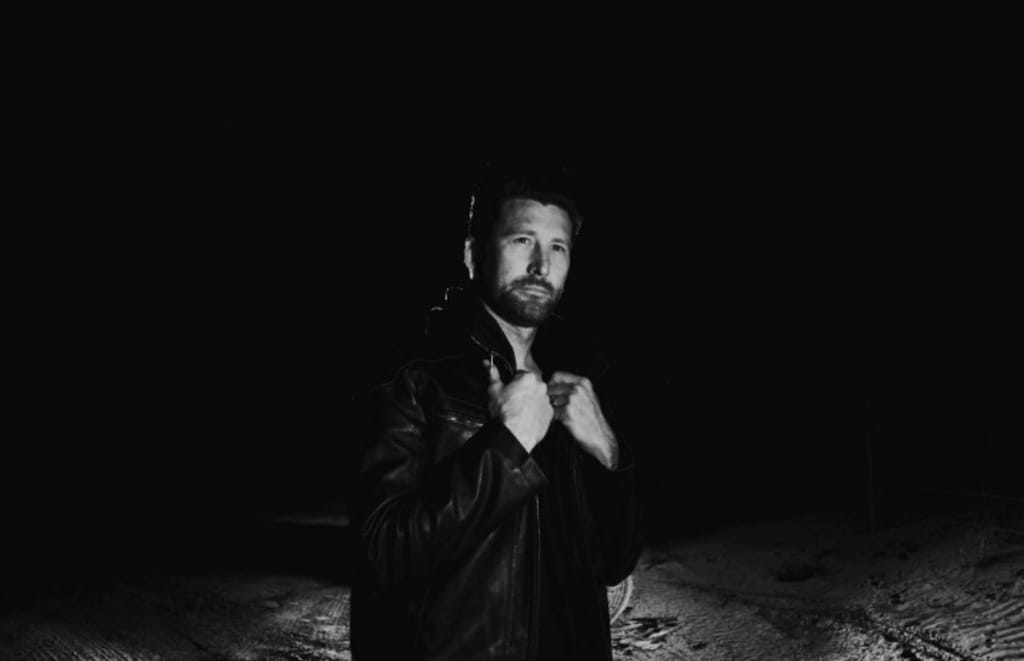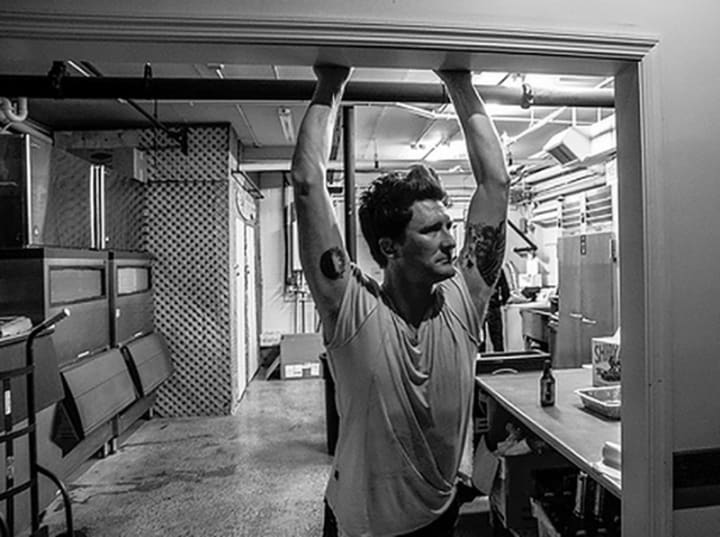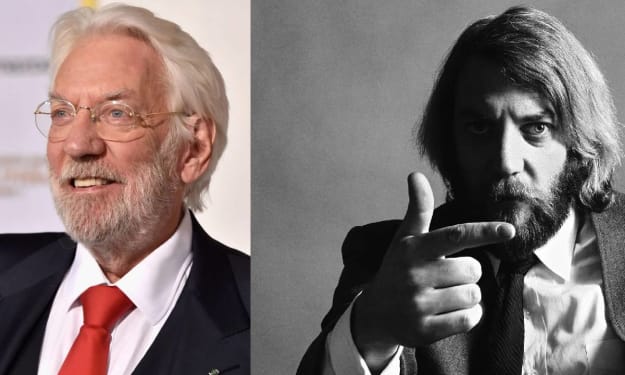Interview with Stephen Christian of Anberlin
On Music & Literature

Today, I talk with Stephen Christian, former front-man of Anberlin, and author of the novel, 'The Orphaned Anything's: Memoir of a Lesser Known'. We learn the origins of this progressively influential band, what inspires Stephen to write both music and prose, and where he is heading next on his artistic journey.
- The Music -
As a musician, your music has most likely changed the lives of many. Who would you consider a band, musician, writer, or person that changed your life?
Several people; My father, my brothers, Brennan Manning, Jesus Christ, Seth Cain, Anberlin, my Love, my grandparents, Phillip Yancey, and Paulho Coelho.
What bands influenced you to become a musician?
The Beatles, Radiohead, The Smiths, Jimmy Eat World, & Syrup (a local band from Winter Haven, FL).
As a band who tours constantly, do you have any one specific story from the road that could be considered a turning point in your career as band or as an individual?
The moment (between Blueprints and NTFP) when I realized that roads were diverging in the woods and I had to decide whether I was going to become another self absorbed musician or attempt to find the harder path towards altruism. I knew that left to my own devices, I would choose the former. So I forced a dear friend to join me on the road to keep my human nature in check. Though my flesh and bones got the best of me a few times in life, I know I would not be the same without accountability.
Many people like to peg bands to certain “scenes” or genres. Being a proud spiritual person yourself, what are your thoughts on people pegging Anberlin as a Christian Band?
Mankind loves to compartmentalize. We are just a casualty of narrow thinking. I am comfortable being a man of faith and a musician at the same time. People enjoy placing us in a nice, neat little box. At first I tried to fight it. Now I have just realized that the best we can do is to just be Anberlin, leaving labels and labeling to those who enjoy such things.

Anberlin took on immense growth and change with each album. Do you ever feel that signing to a major label effects or influences the tone of an album? How much freedom would you say you had with each album?
We have had immense freedom because they did not sign a brand new band. They signed Anberlin. They signed us to sound like ourselves. I consider myself lucky because I have heard horror stories from other bands. They have done minor tweaks that were perturbing (such as the time they changed the song title, King to the obnoxiously long title, We Owe This to Ourselves) but they have not touched our musical direction.
Aside from Anberlin, you continue to have a side project called Anchor & Braille. Care to touch briefly on how this project came about and who is connected?
Anberlin was originally my passion but then it turned into a career. Sometimes i want to feel the struggle, the infancy, the freedom and passion again. That is Anchor & Braille for me.
With a band, it seems that each member brings something original and integral for the band to remain successful or artistically satisfied. If you could give a “position” to each member of the band, what do you think it would it be?
Christian- the raw morale
Joey- the giving wheel & cog
Deon- the immovable loyalist
Nathan- the protector and most protected
Stephen- the driven observer
You recently performed for troops on a Naval vessel. How was that experience? How did the troops respond to your music?
So many stories, but I felt so humbled to be there, undeserving to say the least. The experience will stay with me for the rest of my life, I wish I could do more for those who would give their life for my way of life.

- The Book -
Who did the cover art for your book, 'The Orphaned Anything's: Memoir of a Lesser Known' ?
I had the idea and submitted it to the publisher. I feel like they got the naive innocence perfectly.
What influenced you to write the book?
Failure. My whole life I lived in the shadows of others. I never believed I was good enough. I felt lesser than. Then I realized I don’t care about the perception of others. I wanted to live and write and dream and sing and move mountains even if I wasn’t as capable or as good as others at the tasks I set out to accomplish. My book isn’t good. I am no Hemmingway, and I self admittedly have the grammar skills of a middle school dropout, but at the end of the day I wrote a book. I want to experience all that life has. I may not be the ideal universal man but that won’t stop me from attempting to be one.
Were you working on a specific album while writing the book?
No, it was the season before Cities, though. A few of the ideas cross pollenized later when I was writing the record.
One often draws parallels between the protagonist of a story, and the writer who has created his/her journey on the page. Do you feel this to be true with The Orphaned Anything's?
We as humans want to feel normal, just normal. When an idea bounces off the page it is because we feel like we are looking at a mirror and it excites us; that part of the character that we relate to merely validates the paragraph we had written about our own lives. After all, all we are is the story that we have told ourselves.
The content of the book seems to speak levels of a youth struggling with depression, a questionable view of society, religion, sex, and everything in between. As the writer, do you feel that your own views on these topics have changed as you aged? If so, could you perhaps reflect on a few of those changes?
As much as people lie to themselves or others we are still a summation of who we were in our youth. Some times we repress who we are or learn how to cope or manage who we were but we are all children trapped in aging bodies. Though I can honestly say I have absolutely changed and accepted many growing facts about life it is hard to deny that everything I wrote is still engrained in my DNA.

You craft an interesting style in the book of mis-spellings, grammatical errors, non-existent punctuation. What is your reasoning behind this?
At first I did it on purpose, I call the writing style ‘human’. I wanted the story to feel as if you were simply reading a mind or a journal and not a standard formula of how a book should be written. Then I realized I was just writing thoughts down and saw that the editing errors were just me, this is how I write on a daily basis with constant inconsistencies. I would have had them all corrected by an editor, but I did not have the money, or the motivation to get them corrected. Now I view the style as annoyingly endearing.
If the reader is familiar with your career as a musician, you pull many of your lines to and from prose in the book to lyrics in your music, a marriage many never get to accomplish. Do the lyrics and/or words in the book take on different meanings in each respected medium?
I think the book occasionally explains the ambiguity of lyrics. In a book there is no time limit in what you are trying to convey. In a song it must be much more conscious with a catchy chorus separating all you are trying to preach.
You've mentioned before that you planned on writing a book about your grandfather's experiences in escaping Nazi Germany. Would you care to touch on the progress of this project?
I did, you can find it here: youaresafehere.tumblr.com
Are there an other projects you are working on in what would seem to be the rare free time you have?
Someday I am just going to upload the beginning of my next book to let someone else finish it, this character haunts me and yet I can’t figure him out.
Where can people learn more about your writing?
About the Creator
Ryan Sprague
Ryan Sprague is the author of 'Somewhere in the Skies: A Human Approach to an Alien Phenomenon'. He is also a UFO journalist, TV personality, and a podcaster. More at www.somewhereintheskies.com
Enjoyed the story? Support the Creator.
Subscribe for free to receive all their stories in your feed. You could also pledge your support or give them a one-off tip, letting them know you appreciate their work.






Comments
There are no comments for this story
Be the first to respond and start the conversation.